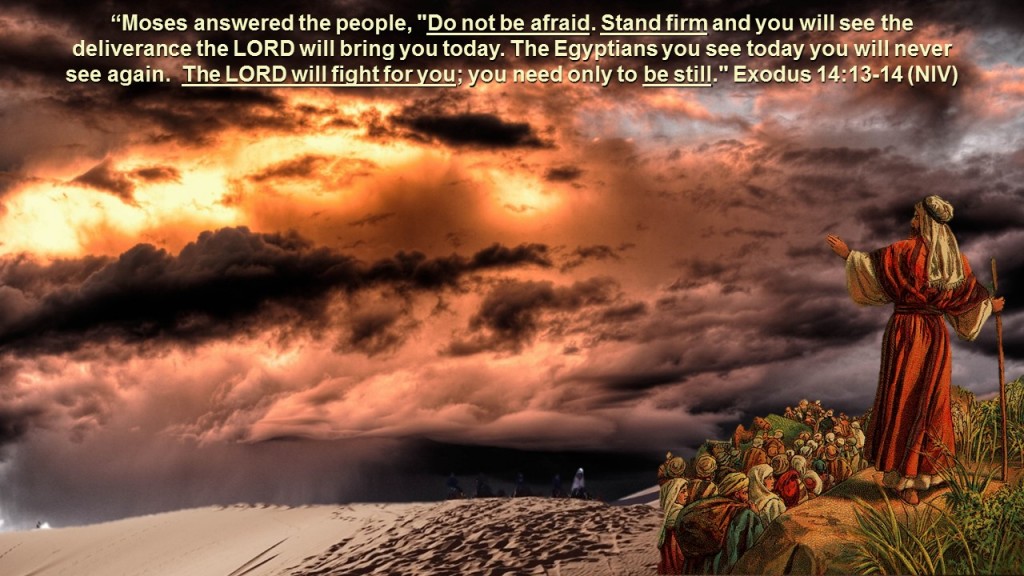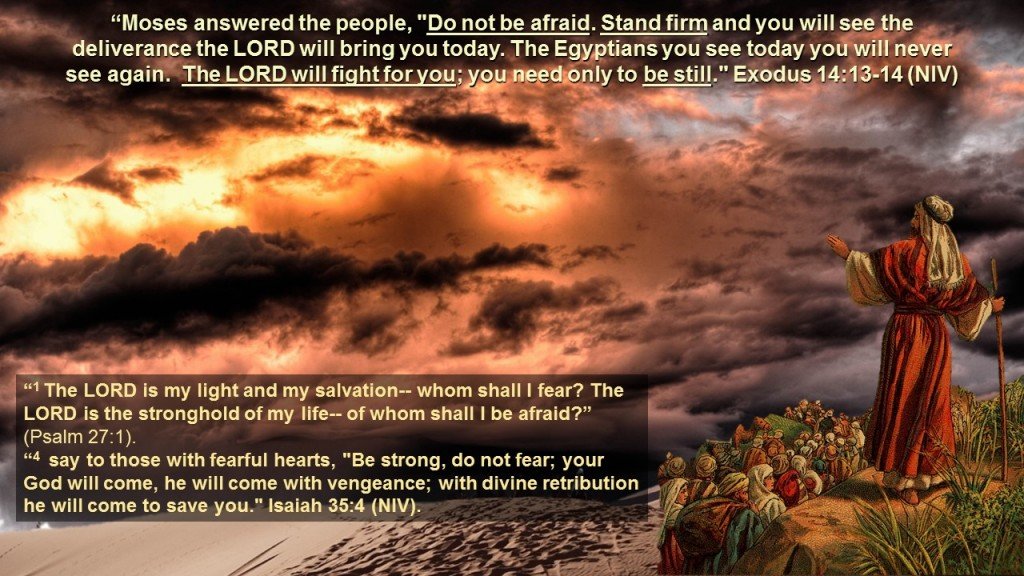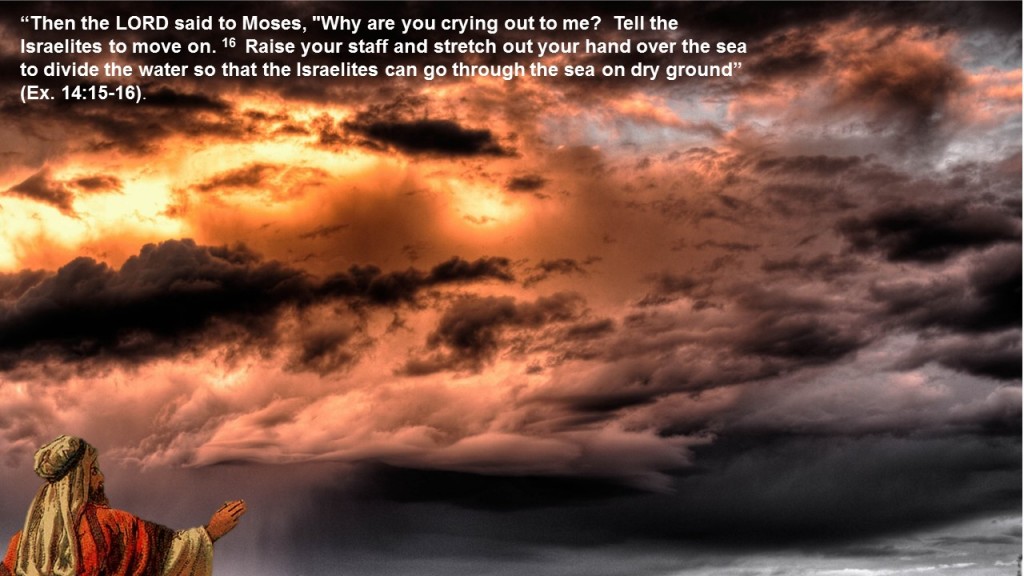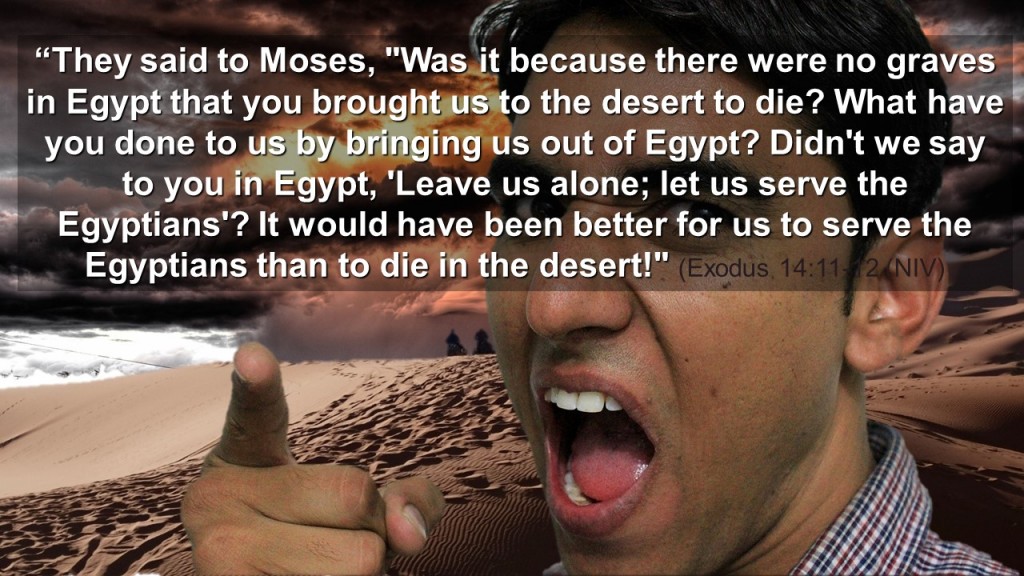To see all of today’s study questions, click here.
How many of you like learning lessons the hard way? Have you ever noticed that you learn some lessons much harder than others?
I was out flying my quad-copter-camera near Vaseux Lake this spring and had just taken off to do a sweep over a rock outcropping. We were safely off on a secondary, and what seemed a rather private bit of a road, when suddenly I found myself distracted by a big truck coming my way. Seriously we had been in that spot for like fifteen minutes setting up, checking wind speed, watching traffic patterns…and there was no traffic what-so-ever. But the very moment I put my DJI Phantom 2 quad-copter-camera in the air a big truck just showed up!
Now to be fair to the Phantom 2 this was like the fourth or fifth time I had flown the copter so I was certainly a bit of a noob. And in that split second of noticing the truck my copter turned and headed straight for a tree. I took my eyes of it just a split second! And disaster struck my quad-camera.
https://youtu.be/YrPN_K8VZKY
I’d like to think I learned my lesson that day but I’m sure that there will be other lessons to learn with this new type of camera along the way. Fortunately, this lesson was not too costly. The camera was fine and the copter had about $60 damage. And no trees were harmed in the filming of this crash. But some lessons in life can cost us dearly especially when we refuse to heed God’s warnings and harden our hearts in the process.
One of the greatest examples of this from HIStory is found in the book of Exodus at a time when Pharaoh’s hardened resolve to let God’s people go cost him everything.
So in today’s Scripture portion we see that even lessons learned the hard way by others can be used to teach us “to fix our eyes upon Jesus the author and prefecter of our faith” (cf. Heb. 12:2). So if you have your Bible with you, turn with me to Exodus 14:10-17 and lets learn from the lessons they had to learn the hard way.
https://youtu.be/qSLa0_HS6OE
10 As Pharaoh approached, the Israelites looked up, and there were the Egyptians, marching after them. They were terrified and cried out to the LORD. 11 They said to Moses, “Was it because there were no graves in Egypt that you brought us to the desert to die? What have you done to us by bringing us out of Egypt? 12 Didn’t we say to you in Egypt, ‘Leave us alone; let us serve the Egyptians’? It would have been better for us to serve the Egyptians than to die in the desert!” 13 Moses answered the people, “Do not be afraid. Stand firm and you will see the deliverance the LORD will bring you today. The Egyptians you see today you will never see again. 14 The LORD will fight for you; you need only to be still.” 15 Then the LORD said to Moses, “Why are you crying out to me? Tell the Israelites to move on. 16 Raise your staff and stretch out your hand over the sea to divide the water so that the Israelites can go through the sea on dry ground. 17 I will harden the hearts of the Egyptians so that they will go in after them. And I will gain glory through Pharaoh and all his army, through his chariots and his horsemen.” (Exodus 14:10-17 (NIV)
 “They were terrified and cried out to the LORD” (10).
“They were terrified and cried out to the LORD” (10).
And can you blame them? I mean really? Just look at the circumstances they found themselves in. Pharaoh had just lost, his pride and joy, the first born son, the heir to his kingdom. It was the final straw that seemed to break his grip on the Hebrew slaves and he reluctantly said they could go and worship their God! He likely said…good riddens! But grief is a powerful motivator as we all know. And one of the stages of grief that often rears its ugly head is sudden uncontrollable anger…even rage. And to top it all off the Bible tells us that Pharaoh wasn’t the only Egyptian royally ticked that day! Every household that wasn’t ‘passed over’ was effected. So there was plenty of grief ridden anger driving those chariots into battle against the Hebrews.
Combine that with the fact that as they left Egypt the Israelites took with them tons of plunder; gold, silver, bronze and plenty of animals and grains and you have even more motive for chasing after them. Sure the Egyptian people were motivated into generosity by God’s plagues (see Exodus 12:36) but that doesn’t mean they wanted to release their slaves and lose their material processions.
Along with the Hebrew slaves, also standing there at the water’s edge the Bible tells us are many others, non-Israelis, that joined with the mass Exodus also taking with them large droves of livestock (cf. Ex. 12:38).
Now remember these folks had only seen the power of the God of the Hebrews do terrible things to their lands and people. They didn’t have the benefit of knowing and understanding God’s redemptive plan handed down through Abraham, Isaac and Jacob and foretold by the prophets of old. They got out of Egypt because the getting was good or so they thought until that storm began blowing in.
Combine all that with the fact that God himself had directed Israel’s path away from the Philistine territory which would have been the most direct route to the Promised Land and made it so they were boxed in by the advancing Egyptian army and you have plenty of reason to be afraid. The Bible tells us that God did this detour because He knew that Hebrew slaves would have high tailed it back to Egypt the first sign of war (Ex. 13:17). But still caught between the armies of Pharaoh and a deep blew sea these folks felt trapped by circumstances. And they had no armies to fight back with either.
The Hebrews knew how to raise crops and herds and build edifices but they were not yet warriors. The Philistines whose territory they avoided on the other hand were a fierce people so God was actually showing great mercy by detouring his people towards the Red Sea.
They were exactly where they ought to be at that moment. At least physically…perhaps not quite so spiritually or emotionally. We know that they were supposed to be exactly there because we’re told that God Himself led them with a cloud of smoke by day and a pillar of fire by night through Succoth, which was Egyptian controlled territory, and then straight to the edge of the Red Sea. Or as it is directly translated in Hebrew, ‘the Sea of Reeds’.
That’s modern day Gulf of Aqaba. Today the Gulf averages 18km wide and is at it’s deepest point more than 1800 meters deep. They have in the last century recovered many artifacts that show where Israel crossed that day. But remember these people fleeing Egypt had no boats as they saw Pharaoh’s army and Chariots in the distance baring down on them. They were terrified!
Because these folks were not hardened warriors, and didn’t have any avenues of escape God had effectively brought them to a point where it was trust Him or die. It was a humanly impossible for them to escape.
So when our Scripture portion says “they were terrified”, you can see they clearly had very good reasons to be terrified. And their first instinct was to cry out to God. This was music to His ears! That is the most appropriate response when we are in fear for our lives.
The Bible says, “The righteous cry out, and the LORD hears them; he delivers them from all their troubles” (Psalm 34:17 (NIV).
 Proverbs we read, “The LORD is far from the wicked but he hears the prayer of the righteous.” (Proverbs 15:29).
Proverbs we read, “The LORD is far from the wicked but he hears the prayer of the righteous.” (Proverbs 15:29).
David, a man who had the kings armies chase him, and had to hide out in caves before becoming King of Israel, wrote, “Look to the LORD and his strength; seek his face always” (1 Chron 16:11). ).
And Paul an apostle who was beaten many times, stoned, left for dead, ship wrecked, and who went hungry, thirsty and was imprisoned several times, wrote, “Do not be anxious about anything, but in every situation, by prayer and petition, with thanksgiving, present your requests to God” (Phil 4:6).
But the armies of Pharaoh were raising a cloud of dust …and their bugles were blaring and there was nowhere to go! They were terrified!
So Israel cried out to God and then in frustration took out their fear and anxiety on God’s mouth piece, Moses, as though he was the one moving the cloud by day and the pillar of fire by night that led them to the very spot in which they stood.
“11 They said to Moses, “Was it because there were no graves in Egypt that you brought us to the desert to die? What have you done to us by bringing us out of Egypt? 12 Didn’t we say to you in Egypt, ‘Leave us alone; let us serve the Egyptians’? It would have been better for us to serve the Egyptians than to die in the desert!” (Exodus 14:11-12 (NIV)
I know he’s the leader and the buck stops with him…but really? Did they think that his boss wasn’t listening in? When they shouted at him were they not blaming the One who sent him?
Fear and anxiety can cause us to respond in ways that truly show those around us how much we believe in God. In anger and rage…not much but certainly there were those who had faith in that crowd. They just weren’t as loud as the fearful ones. Unfortunately, this wasn’t to be the last time that Moses would have to deal with mob mentality run a muck. In fact they were just getting started. But Moses also showed some extraordinary leadership skills that day!
Unlike the newest recruit on examination day.
The story is told about “A young police officer that was taking his final exam. One of the exam questions went like this: ‘You are on foot patrol in central Vancouver, down near BC Place, when you hear an explosion on a nearby street. On investigation you find a fire hydrant has been taken out and a geyser of water is currently flooding an overturned van. Inside the van there is a strong smell of alcohol. Both occupants – a man and a woman – are injured. You recognize the woman as the wife of your staff Sargent who is presently away on holidays. A car stops nearby to offer you help and you recognize the driver is wanted for terrorist related offences.
When suddenly a man runs out of a nearby condo, shouting that his wife is with child and the accident has made the birth imminent. Then you notice another man waving frantically and crying for help, having been blown into the harbor by the water geyser, and clearly he cannot swim.
The exam question was – Describe in a few words what you would do.’
The new recruit thought for a moment before writing his answer to the question: He wrote… ‘I would take off my uniform and mingle with the crowd.’” (Unknown)
But there was no mingle room for Moses that day! “13 Moses answered the people, “Do not be afraid. Stand firm and you will see the deliverance the LORD will bring you today. The Egyptians you see today you will never see again. 14 The LORD will fight for you; you need only to be still.” Exodus 14:13-14 (NIV)
His answer provided a three full response to help ease their panic and fear. 1. Having seen and been used by God to perform miracles Moses had the faith to say, “Do not be afraid”(13). Surely God had not done all those miracles to let the people succumb in Succoth. To die in the dessert next to the sea!
When people are overwhelmed it often helps when you calmly remind them that they still have the ability to exercise some control in this situation. They can choose not to fear or they will have chosen to be overwhelmed by fear.
That’s why Moses said, “Do not be afraid”.
Like King David, Moses knew, “1 The LORD is my light and my salvation– whom shall I fear? The LORD is the stronghold of my life– of whom shall I be afraid?” (Psalm 27:1). Isaiah wrote, “4 say to those with fearful hearts, “Be strong, do not fear; your God will come, he will come with vengeance; with divine retribution he will come to save you.” Isaiah 35:4 (NIV). 
Moses reminded Israel, they should not fear because the Lord himself would deliver them and fight for them (cf. 13-14).
This wasn’t a matter of them bucking up courage and girding their lions for battle. God had already demonstrated to them His mighty power. In fact, Moses said they merely had to “stand firm” and watch what God would do. But that’s hard for us men isn’t it? I’m not sure how women handle it but as a man I can tell you that “being still, standing firm” is about as welcome advice as “wait upon the Lord” (cf. Isaiah 40:31). It’s not that it’s bad advice but as a man there must be something I can do?
Am I right men?
I mean you come home and your wife gives you the look. You think, oh oh, now what have I done? You say hi honey? But really your saying, what’s up? She breaks down and starts sobbing uncontrollably. And you want to fix the situation right? You start thinking about all the things it might have been that got her down. And you are ready to do what it takes to fix this. But just maybe what it takes is a hug, and a listening ear. And the fortitude to not do anything in that moment, don’t offer any advice, just be there and be still and let her unload. But men would much rather fix things, am I right? Maybe I’m just weird.
But clearly there was absolutely nothing that Israel could do for themselves in this given situation. This would require action from God! And He was planning something much bigger than them.
“15 Then the LORD said to Moses, “Why are you crying out to me?” Crying out?
Ummm…I don’t see Moses crying in this passage do you? We see what Moses said to the throng but no where do we hear him cry out. Yet God heard Moses. God heard the rather urgent plea from his chosen vessel as he tried to convince the throng.
Frankly, I think Moses was more worried about that unruly bunch of grumblers before him than all of Pharaoh’s armies. And just because Moses was their appointed leader doesn’t mean he’s less human then they are. Remember he didn’t want the job in the first place. So he may have wined just a bit to God.
God told Moses, “Tell the Israelites to move on. 16 Raise your staff and stretch out your hand over the sea to divide the water so that the Israelites can go through the sea on dry ground”.
 Do you think Moses might have thought, “now why didn’t I think of that?” I have this handy staff that has never let me down before.
Do you think Moses might have thought, “now why didn’t I think of that?” I have this handy staff that has never let me down before.
But wait a minute…did you notice that Moses had just finished telling the people to stand firm, be still? Wait for God’s deliverance! Seems exactly opposite of what God told them to do doesn’t it?
It wasn’t bad advice that Moses had spoken. He had an unruly crowd that he thought could use some verbal reassurance. But God corrected him. It wasn’t time to be still, or stand their ground they needed to get out of dodge!
What Moses was told to say was, “move on!” And fortunately for Israel Moses was clearly in very close fellowship with the Lord for when he heard the command to go and stepped up to the plate reaching out his staff and the sea opened right up.
God trusted this man Moses more than most. You know how I know this? God took enough time to fill in the ‘why’. Why was this lesson about to happen? What was the purpose of it.
Why had God brought Israel to the end of the rope so to speak?
Why? Was it so they would learn that GOD alone is their strong deliverer? He alone is worthy of their faith!
 King David would later write, “6 Now I know that the LORD saves his anointed; he answers him from his holy heaven with the saving power of his right hand. 7 Some trust in chariots and some in horses, but we trust in the name of the LORD our God.” (Psalm 20:6-7 (NIV)
King David would later write, “6 Now I know that the LORD saves his anointed; he answers him from his holy heaven with the saving power of his right hand. 7 Some trust in chariots and some in horses, but we trust in the name of the LORD our God.” (Psalm 20:6-7 (NIV)
God said, “17 I will harden the hearts of the Egyptians so that they will go in after them. And I will gain glory through Pharaoh and all his army, through his chariots and his horsemen” (Exodus 14:15-17 (NIV).
Moses was indeed right that their strong deliverer was about to amaze them and cut them off from their foes. Israel did need to stand firm in God, and be still and know that He could do exceedingly abundantly more than they had asked. But would they actually learn the lesson of Pharaoh and not give into bad attitudes and wicked thinking that hardens hearts and kills faith?
I believe God is still working on that one …even with us many centuries later. The only difference is we have a Saviour who has overcome sin and selfishness and who bestows upon us the gift of righteousness. One who is able to deliver us from anything that this old world or even anything Satan throws our way.
And unlike Israel who were caught between a rock and hard place, we have a choice to make. We can slip back into what we think is comfortable, our old thought patterns and lifestyle, go back to Egypt or we can choose to press on to the promised land choosing to trust in our Strong Deliverer every day as He leads the way.
We can learn from their lessons or we will learn it the hard way. But do you really like learning the lessons the hard way?
Read Exodus 14:10-17 in several versions.
- Have you ever had to learn a lesson the hard way? Can you think of one example? What made it the hard way?
- Do you like learning lessons the hard way? Is there any other way to learn?
- Under what circumstances had Israel left Egypt? (Numbers 33:3-7)
- Who lead Israel to the Red Sea? (Exodus 6:1; Exodus 13:9,16,18, 20-22; Deut 26:8; Neh. 9:9; Acts 13:7) How did He lead them?
- So why was Israel terrified? (Exodus 14:9;10)
- What caused Pharaoh to pursue Israel? (see also Exodus 7:3,13, 9:12, 10:1, 20,27, 11:10, 14:4,8; 1 Samuel 6:6; Exodus 8:15,32; 9:34 )
- Was God unjust in hardening Pharaoh’s heart? (See Acts 10:34, Psalms 33:5, Deuteronomy 30:19 and Isaiah 10:5-11).
- What lesson was God teaching Israel in our passage today? (Num. 14:9; Duet. 20:3; 2 Kings 6:16; 2 Chron 20:15-17; Psalm 27:1-2; Psalm 46:1-3; * Isaiah 26:3; Isaiah 41:10-14; * Isaiah 43:11; Lam 3:26; Hosea 13:4; * John 3:16,17 )
- What lesson is God trying to teach you today? Do you like learning lessons the hard way?





You must be logged in to post a comment.